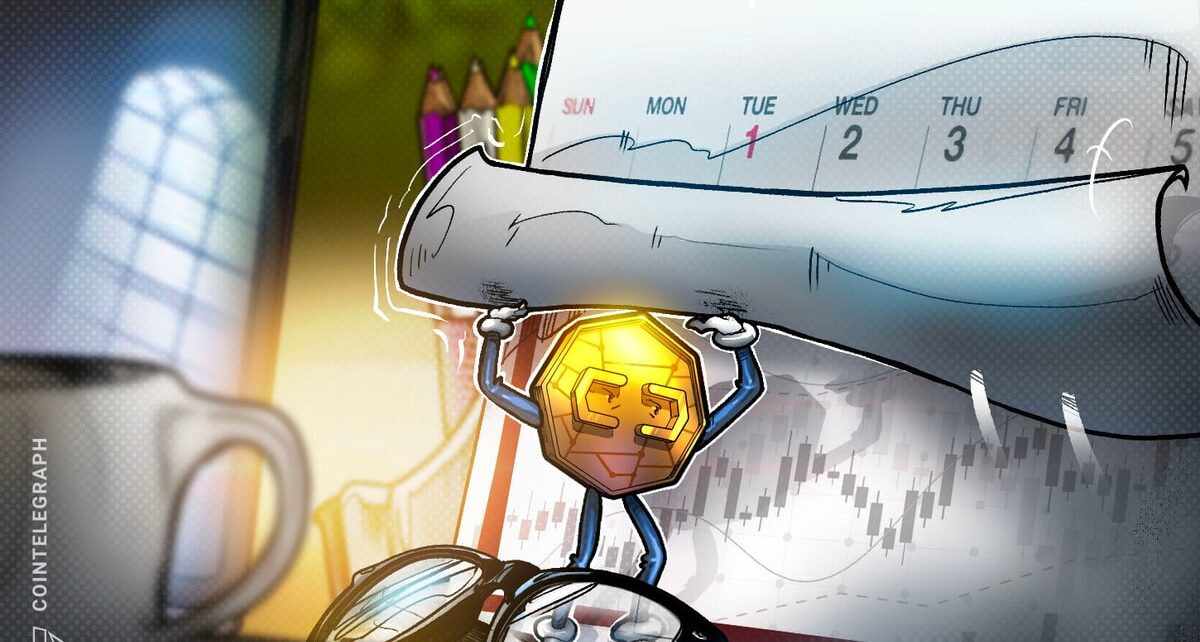As the vacation season approaches, anticipation within the cryptocurrency world heightens for the annual phenomenon generally known as the "Santa rally." Amidst this festive interval, market dynamics are likely to shift. This season, there are a number of components that would affect the previous couple of months of the 12 months.
Institutional funding surge
Cryptocurrency costs spiked notably on the finish of 2020 and 2021, pushed by elevated investor optimism and institutional curiosity. Main monetary establishments and hedge funds started viewing Bitcoin (BTC) not simply as a speculative asset however as a hedge against inflation and a possible retailer of worth. Giant firms like Square and MicroStrategy added major Bitcoin holdings to their steadiness sheets, additional solidifying this picture shift.
Moreover, Bitcoin reached all-time highs, igniting a optimistic sentiment all through the market. Additional, institutional funding was demonstrated when companies like Tesla made large-scale Bitcoin acquisitions publicly identified. Furthermore, the introduction of plenty of cryptocurrency ETFs and funds gave institutional buyers a extra handy and acquainted solution to entry the market.
Companies are catering to institutional buyers searching for secure storage choices for his or her cryptocurrency holdings within the rapidly evolving monetary panorama of 2022 by offering custody services, that are important for safeguarding digital property.
Associated: Bitcoin is evolving into a multiasset network
Regardless of some fluctuations, the trajectory was generally upward in 2022. As soon as skeptical, conventional monetary establishments began to offer quite a lot of crypto companies, reminiscent of lending, buying and selling, and custody. Institutional actors have additionally acknowledged the emergence of decentralized finance (DeFi) and nonfungible tokens (NFTs), notably venture capital corporations and specialised funds looking for novel funding alternatives.
For instance, prominent financial institutions collaborated to ascertain EDX Markets (EDXM), a novel change designed for the buying and selling of digital property by means of dependable intermediaries. This platform will cater to each institutional and retail buyers, making certain a safe setting for digital asset buying and selling. Noteworthy backers of this initiative included famend entities reminiscent of Charles Schwab, Constancy Digital Property, Paradigm, Sequoia Capital, Citadel Securities, and Virtu Monetary, reinforcing the change's credibility and power inside the market.
In 2022, regardless of the crypto winter, improvement within the crypto sector elevated by 5%, indicating sustained curiosity in underlying expertise. Moreover, a 2022 Celent survey revealed 91% of institutional buyers are eager on investing in tokenized assets, highlighting robust demand.
The upcoming season may witness a fair bigger inflow of institutional capital into the crypto area, exemplified by entities like MicroStrategy, which is expanding its crypto holdings by buying further 1,045 Bitcoin for its rising treasury. Additionally, analysis by EY-Parthenon reveals {that a} majority of institutional buyers hold a robust perception within the enduring worth of blockchain expertise and crypto property, main them to plan substantial scaling of digital asset investments over the subsequent two to 3 years.
Furthermore, there's a rising curiosity amongst buyers to take part in tokenized financial assets, prompting establishments to actively discover alternatives to tokenize their very own property in response to the evolving monetary panorama. Because the trade continues to mature and achieve legitimacy, new monetary merchandise tailor-made particularly for institutional buyers might emerge, additional facilitating their entry into the market.
Regulatory readability
In 2020, because the cryptocurrency market boomed, it inevitably caught the attention of regulators worldwide. Some nations responded by enacting full prohibitions, however others adopted a extra measured technique and began the method of developing regulatory frameworks to watch and management the quickly increasing area of digital property.
In 2021, U.S. regulatory developments — notably these pertaining to the SEC's place on cryptocurrencies — turned central to the worldwide narrative surrounding cryptocurrencies. The trade was alert as a result of ongoing discussions about cryptocurrency laws and the push for approvals of Bitcoin ETFs. Concurrently, there have been substantial market realignments and conversations concerning decentralization because of China's crackdown on cryptocurrency mining and trading.
The cryptocurrency regulatory setting started to evolve in 2022. After preliminary discussions, plenty of nations established exact legislative frameworks with guidelines governing cryptocurrencies, initial coin offerings (ICOs), and DeFi platforms. On the identical time, there was a surge within the international motion to create central bank digital currencies (CBDCs), with many international locations introducing or testing their very own digital currencies.
This 12 months, important developments reshaped the worldwide cryptocurrency panorama. For example, Thailand’s Securities and Alternate Fee is poised to ease restrictions on retail investments related to ICOs, aiming to stimulate digital investments and foster market progress.
In the meantime,the European Union took decisive motion by enacting the Markets in Crypto-Assets (MiCA) regulatory framework in April 2023, ushering in a brand new period of complete crypto laws inside the area.
Associated: IRS proposes unprecedented data-collection on crypto users
A pivotal second occurred in July 2023 when a ruling by U.S. Circuit Choose Analisa Torres affirmed Ripple's compliance with the legislation concerning XRP gross sales on public exchanges, marking a significant legal victory for the cryptocurrency sector towards U.S. regulators. Nonetheless, she additionally clarified that Ripple had violated securities legal guidelines by providing XRP to hedge funds and institutional consumers.
In September, four members of the United States Congress rallied for fast approval of spot Bitcoin itemizing by Securities and Alternate Fee Chair Gary Gensler. As these occasions have unfolded, we’ve additionally seen rising anticipation of a spot Bitcoin ETFs. This potential milestone holds the prospect of introducing clearer regulatory frameworks, offering the cryptocurrency trade and buyers with a extra structured and outlined trajectory forward.
The confluence of AI and Web3
The convergence of Web3 and AI technology began to dramatically alter the cryptocurrency setting within the waning months of 2020. Predictive analytics and AI-driven buying and selling algorithms gained recognition, enabling institutional and particular person buyers to make data-driven decisions within the erratic cryptocurrency market. With the usage of this expertise, market evaluation was improved, permitting buyers to foretell worth fluctuations and profit from their buying and selling techniques all through the upswing.
The connection between Web3 and artificial intelligence (AI) grew stronger in 2021. AI-powered DApps turned extra prevalent, offering revolutionary options in fields like NFTs and DeFi. The market gained momentum because of this integration, which made yield farming, and NFT creation and buying and selling more practical. AI-driven sentiment evaluation instruments additionally performed an important function, offering insights into market sentiment and traits, aiding buyers in making knowledgeable choices.
In 2022, we witnessed the maturation of AI and Web3 integration with initiatives like Aave utilizing AI algorithms to streamline lending processes, Rarible’s use of AI to offer individualized NFT curation. These initiatives showcased safe, automated, and trustless transactions, boosting investor confidence.
The confluence of AI and Web3 is poised to redefine this Christmas season as soon as once more. AI algorithms will develop additional, permitting for proactive trading decisions and real-time monitoring of market knowledge. Web3 applied sciences are anticipated to help inventive funding fashions and decision-making procedures, notably within the areas of decentralized autonomous organizations (DAOs) and AI-driven governance methods.
The incorporation of AI-generated content in crypto within the type of NFTs and AI-powered virtual reality experiences may very well be a driving drive out there within the months forward. That enthusiasm might contribute to newfound liquidity within the markets, and improvement for the trade.
Guneet Kaur joined Cointelegraph as an editor in 2021. She holds a Grasp of Science in monetary expertise from the College of Stirling and an MBA from India’s Guru Nanak Dev College.
This text is for basic info functions and isn't meant to be and shouldn't be taken as authorized or funding recommendation. The views, ideas and opinions expressed listed here are the creator’s alone and don't essentially mirror or signify the views and opinions of Cointelegraph.






